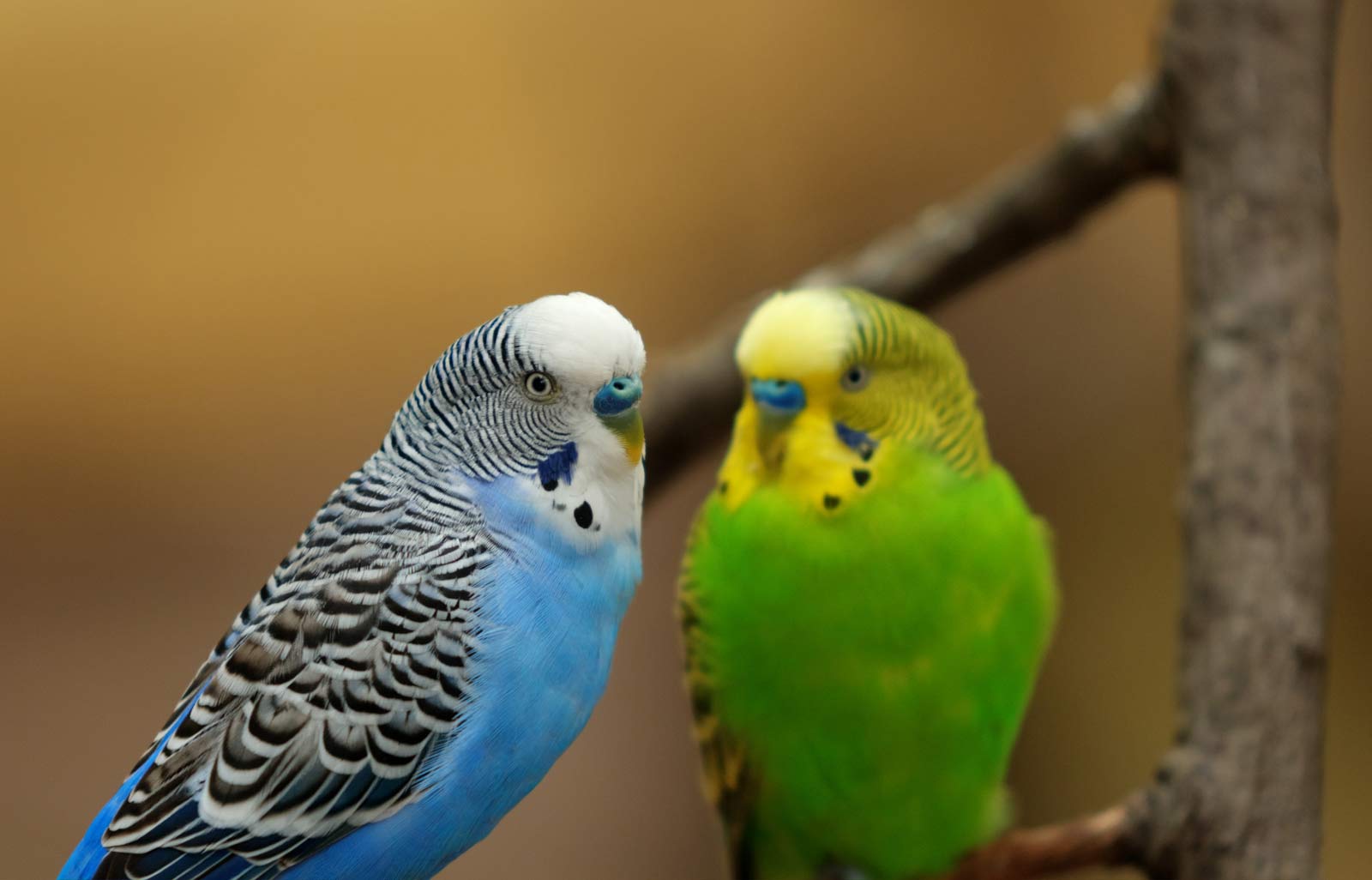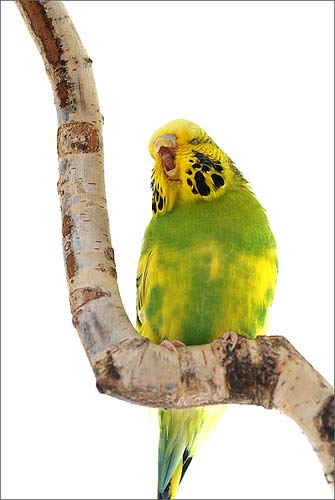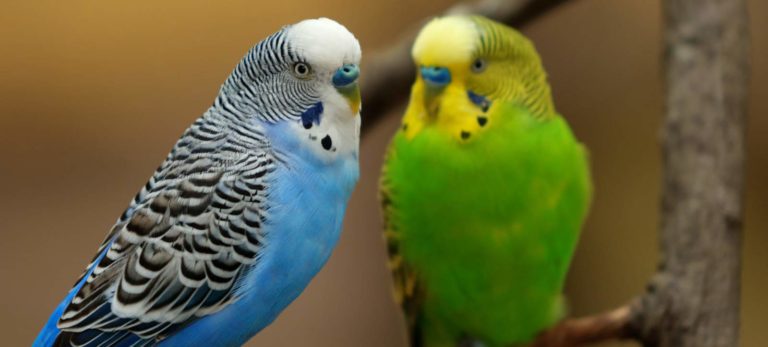Good news! Parakeets might just be able to respond to how you feel!
Yes, a recent study in the journal Animal Cognition suggests budgerigars are capable of certain aspects of affective empathy. Let’s start with a little background on empathy: Over the years of psychologists conceptualizing empathy, researchers have basically agreed that there are two distinct components at play: cognitive empathy and affective empathy.
Affective empathy, however, is the imaginative experience of another’s state of mind.
Cognitive empathy, the intellectual understanding of another’s state of mind, isn’t super important for the purposes of this post. Affective empathy, however, is the imaginative experience of another’s state of mind. You may have experienced feeling embarrassed on someone else’s behalf or feeling ecstatic upon hearing your friend got the job they wanted. Neither the embarrassment nor the job have a ton of bearing on you, but you feel these things vicariously nonetheless.
Okay, now for birds. Parakeets are a particularly social species, which is cool, because that means they definitely make awesome companions. Being a social species, however, also means that a lot of effort and thought needs to be put into making friends and maintaining the flock relationship. To do this, it’s really important to be able to respond feelings of fear (“Are you flying away because of something scary? Should I also fly away?”) or of reinforcing positive feelings (“I could share these seeds… you are happy? Yes? I should do that!). Because of this, it would make sense that budgies have some sort of psychological mechanism for inferring another’s thoughts or feelings.

A study published earlier this year by Gallup, Swartwood, Militello, and Sackett sought to explore the possibility that budgies are capable of empathy, or at least certain aspects of it. To do this, they systematically measured contagious yawning. Now, I could go into mirror neurons in various cortices, but to keep it short, contagious yawning is a widely used model of affective empathy because it’s essentially a brain saying, “See what he’s doing? Do that.” And so the researchers placed their birds in side-by-side cages, some with visual barriers, some without. Then they watched their birds. Now, given all of this information, it might seem logical to assume that if they can see each other, they will yawn more often. Well, that’s exactly what happened. In fact, the birds who could see each other yawned three times more often than those who couldn’t see each other! This clearly supports the idea that yawning is contagious. Here’s why that’s cool: This study puts budgies on the map as the first non-mammalian species in which contagious yawning has been observed. Before this, we saw it in humans, domesticated dogs, and rats, among a few others.
This study puts budgies on the map as the first non-mammalian species in which contagious yawning has been observed.
In a second study, the researchers attempted to get the same result with just a video of a budgie yawning. The birds were placed in cages in full view of a monitor where the video was played. They played one clip of a budgie yawning and one of a budgie just doing whatever budgies do (as a control condition). In this experiment, the birds in the yawning condition yawned twice as often as those in the control!

So, parakeets are capable of thought-based communication (basically), what does that mean? Well, on the surface, it means parakeets socialize like we do in a way. It means parakeets are at least somewhat capable of experiencing what psychologists call a theory of mind, which means they know they are a being and they know their friend is a being with its own independent bird perspective. They’ve evolved to know that another’s state of mind is important to their survival, so they pay attention to it. If budgies are used as an animal model of certain forms of empathic processing, this means we’re making great strides in understanding avian behavior and the parallels of human social behavior.
These studies give us reason to believe that when you’re sad, your budgie friend feels that and can actively attempt to console you. When you are happy, your budgie friend is excited for you. And when you’re tired, your budgie friend may just start to yawn.
Image credits [1]
